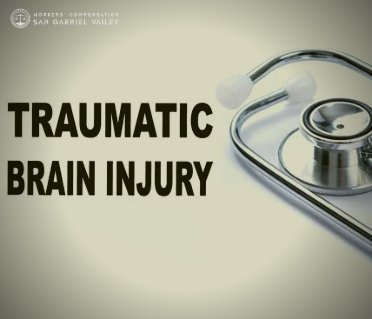While brain injuries are something that you may not think about very often, they are one of the most common work-related illnesses that cause disability and death. Workplace traumatic brain injuries often result from a fall or an injury on the job.
While it can be hard to pinpoint how many workplace traumatic brain injuries occur each year in the United States because no national database correlates this statistic, the Centers for Disease Control and Prevention (CDC) estimates that 3.2 million workers sustain a work-related traumatic brain injury annually. These types of injuries can lead to various physical and mental health complications.
This article will examine these injuries and what can be done to alleviate them!
What is a workplace traumatic brain injury?
A workplace traumatic brain injury (TBI) is an injury to the head that disrupts the brain’s normal functioning. A TBI can occur when the head is suddenly and violently jarred or hit, causing the brain to bounce around or twist inside the skull. This can damage the brain tissue and cause bleeding, swelling, and other problems.
A TBI can range from mild (such as a concussion) to severe (such as a coma). A mild TBI may only result in a brief loss of consciousness or confusion, while a severe TBI can cause extended periods of unconsciousness, memory loss, paralysis, and even death.
If you have suffered a workplace TBI, it is essential to seek medical attention immediately. Even if you do not feel like you have been seriously injured, it is always best to err on the side of caution when it comes to head injuries. After being evaluated by a doctor, you may need to undergo further testing, such as a CT scan or MRI, to determine the extent of your injuries.
If your TBI is mild, you may only need rest and over-the-counter pain medication to help you recover. However, more severe cases may require hospitalization, surgery, physical therapy, and occupational therapy. In some cases, people with severe TBIs may never fully recover and need long-term care.
Common occupations with a high risk of sustaining a TBI
Many occupations come with a high risk of sustaining a TBI. Some of the most common are:
- Construction workers
- Emergency responders
- Military personnel
- Athletes
- Factory workers
- Farmers and ranchers
- Drivers
Signs and symptoms of workplace TBI
The signs and symptoms of workplace TBI can vary depending on the severity of the injury. However, some common signs and symptoms include:
- headache
- dizziness
- nausea
- vomiting
- blurred vision
- ringing in the ears
- fatigue
- difficulty concentrating or remembering things
- mood swings or irritability
If you have any of these symptoms after sustaining a head injury at work, it’s essential to seek medical attention immediately. Even if your symptoms seem minor, they could indicate a more severe problem.
What are the risk factors for injuries at the workplace?
There are many risk factors for sustaining a workplace injury, especially a traumatic brain injury. Some of the most common include:
- Working in a high-risk industry such as construction or mining
- Being a young worker
- Having little experience on the job
- Working long hours or overtime
- Being exposed to hazardous materials or conditions
- Not being adequately trained on safety procedures
These are just some of the many risk factors contributing to sustaining an injury at work. It’s essential to be aware of these risks and take steps to protect yourself from them.
How can workers get help after sustaining an injury from their work environment?
If you’ve suffered a workplace injury, the first thing you should do is seek medical attention. Once a doctor has seen you, you can file a workers’ compensation claim.
Workers’ compensation is a state-regulated insurance program that benefits injured employees or who become ill due to their job. Benefits can include medical expenses, income replacement, and death benefits.
To file a workers’ compensation claim, you must contact your employer and the workers’ compensation insurance carrier and provide them with information about your injury or illness. You may be asked to fill out forms and attend an interview.
Once your claim is filed, the insurance company will review it and decide whether you are eligible for benefits. If your claim is approved, you will begin receiving benefits promptly. You have the right to appeal the decision if your claim is denied.
If you have any questions about filing a workers’ compensation claim, don’t hesitate to contact an experienced attorney for assistance.
Tips for preventing work-related TBIs
There are many ways to prevent work-related TBIs, and it is essential to take all necessary precautions. Some tips for preventing work-associated TBIs include:
- Wearing the proper safety gear. This includes helmets, face shields, and other protective equipment.
- Using caution when working with dangerous materials or in dangerous areas.
- Following all safety protocols and procedures.
- Reporting any potential hazards to your supervisor.
- Being aware of your surroundings and taking breaks often to rest and rejuvenate.
Contact us at San Gabriel Valley Workers’ Compensation Attorneys.
If you or someone you know has suffered a workplace traumatic brain injury, don’t hesitate to contact us at San Gabriel Valley Workers’ Compensation Attorneys or Call us at (626) 602-9483. We are experienced in handling these cases and can help you get the compensation you deserve.



